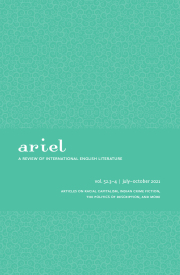Mark Mathabane’s K*ffir Boy, Black Consciousness, and the Fallacies of Liberalism
Keywords:
Mark Mathabane, Kaffir Boy, Steve Biko, Black Consciousness, liberalism, whiteness, apartheid, Alan Paton, South AfricaAbstract
Offering a sustained reading of Mark Mathabane's K*ffir Boy: The True Story of a Black Youth's Coming of Age in Apartheid South Africa (1986), this essay examines the autobiography in light of Steve Biko's thought to demonstrate how Mathabane's stated goals of challenging racism and advancing liberation for Black people are in conflict with his liberalism. Interrogating the autobiography in view of Black Consciousness philosophy brings into stark relief the contradictions that inform its racial politics. As I read the work against the grain and probe the reasons for its enduring popularity among US readers, I show that, paradoxically, Mathabane both conceals and makes visible the workings of white supremacy. While Mathabane argues that white liberals are not responsible for apartheid, he unwittingly demonstrates the opposite, thereby exposing how white liberals worked alongside white nationalists to uphold racial dictatorship in South Africa. The autobiography thus illustrates what Biko calls "the totality of the white power structure," namely how white people work as a collective across ideological boundaries to maintain the racist status quo. In the process, the work shows that the attempt to fold Black people into the logics of liberalism upholds the racism that liberalism depends upon. Ultimately, K*ffir Boy reveals not only the fallacies of liberalism and impossibility of white antiracism, but also the unwavering importance of Black Consciousness in the ongoing struggle for Black liberation.


